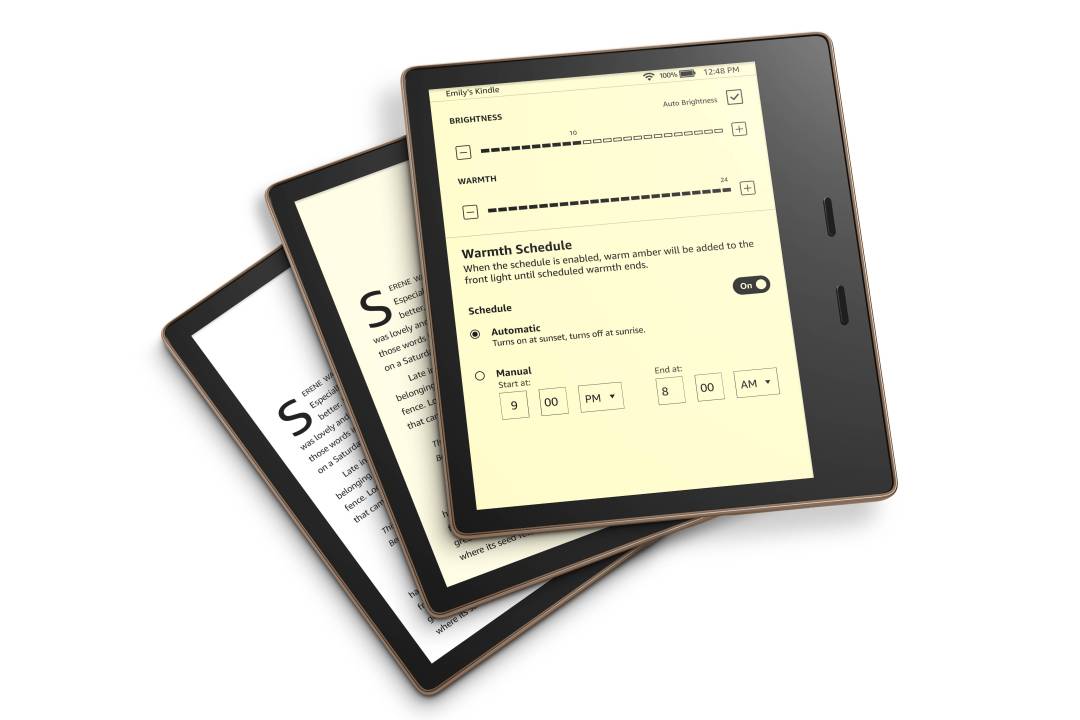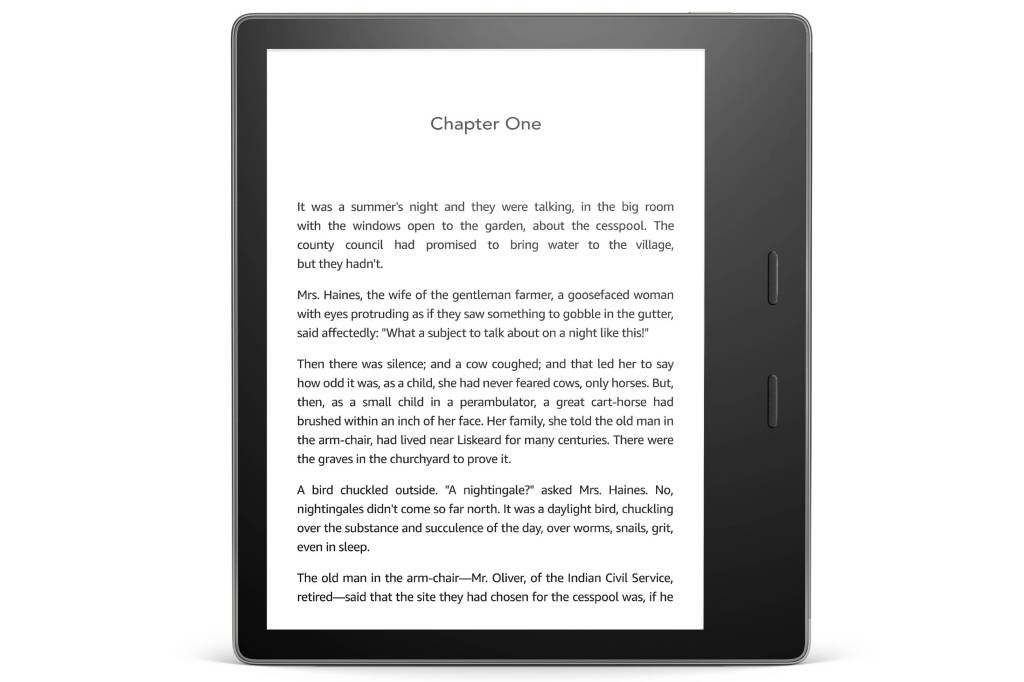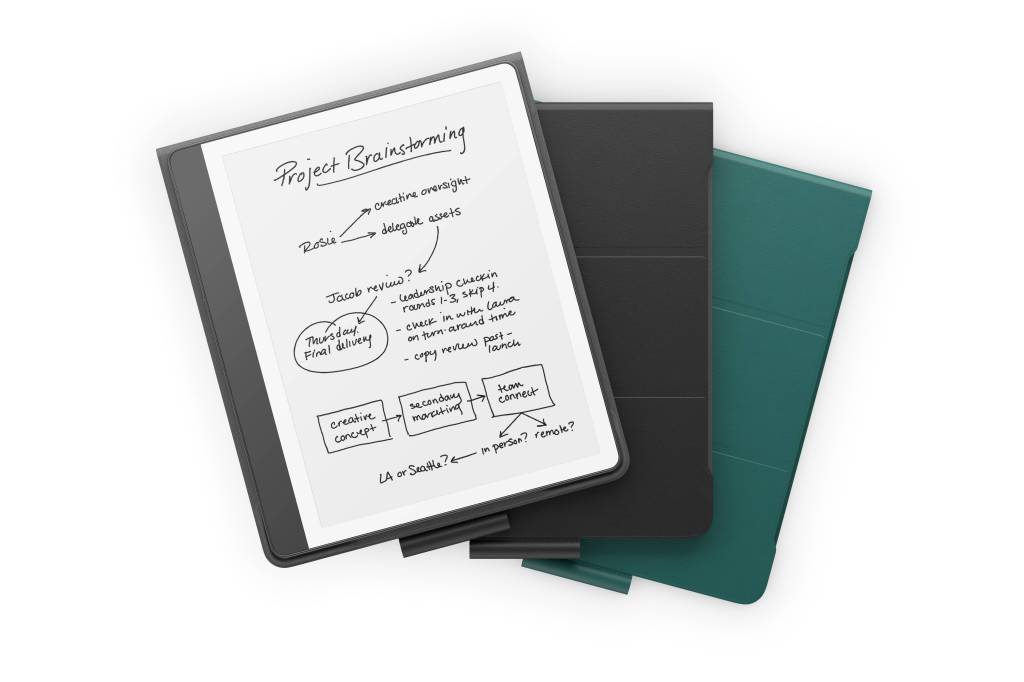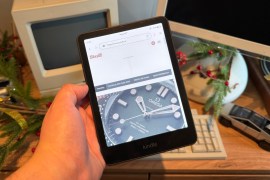The ancient Kindle Oasis still has one exclusive feature that I wish Amazon would bring to newer models
It’s the biggest Kindle refresh in years, and the perfect opportunity to upgrade from an aging model like my own - but I’m reluctant

It’s been a big week for Amazon’s market-dominating family of e-readers. In a win for graphic novel fans (and people who just like admiring book covers), the Kindle Colorsoft is the first Kindle to sport a colour display, while the Kindle Scribe has a fashionable new look and is the latest gadget to make use of advances in generative AI. The best-selling Paperwhite also got a much-needed upgrade.
It’s the biggest Kindle refresh in years, and the perfect opportunity to upgrade from an aging model like my own – but I’m reluctant. You see, I’m the owner of what we now know to be the final iteration of the Kindle Oasis, which hasn’t been updated since 2019 and is finally officially being retired from the lineup.
The Oasis was once the premium e-reader in the Kindle family, and the first to introduce the adjustable colour temperature feature that has since trickled down to the cheaper and much more popular Paperwhite.
At the time, being able to make the display warmer was great for late-night reading, while the off-white colour was just more effective at simulating actual paper. But it’s no longer a technology reserved for the high-end model, and the new Paperwhite features a 7-inch display too, matching the Oasis for screen size for the first time. I daresay it’ll feel a lot snappier to use than the more than five-year-old Kindle Oasis that retains its spot on my bedside table too – and as the Kindle Oasis never graduated from the classic monochrome display, the Colorsoft has it comfortably beaten in that department.
An Oasis reunion that isn’t going to happen
So why am I yet to smash the order button on one of the new Kindles, bidding farewell to my trusty Oasis and thanking it for its half a decade of pre-bedtime service? Simple. Because the Oasis remains, annoyingly, the only Kindle with physical page-turn buttons. Since its inception in 2016, the Oasis has been asymmetrically designed for easy one-handed use, with a larger surface area on one side of the bezel allowing you to hold it without your thumb encroaching on the page, and the two page-turn buttons letting you flick back and forth between pages without having to swipe. While the overall device was impressively lightweight, the thickest, heaviest part was in your hand, making it easier to hold steady.

I’ve come to love this design over the years. The Kindle Oasis always felt overpriced for what it was, but once you’ve made a dent in Colson Whitehead’s Harlem Shuffle on a sunlounger with the e-reader in one hand and a beer in the other, never needing to put said beverage down to flick the page forward thanks to those perfectly placed and easily reachable buttons, it’s hard to go back to the hand gymnastics required to perform the same feat with a swipe-only Kindle, or indeed a traditional paperback.
A load of old swipe
I get it. Touchscreens are now so ubiquitous that many toddlers can work their way around them before they can convincingly say their own names, and Amazon has clearly decided that the future of Kindle is touch-only, especially when each new generation brings with it faster processors that make the interface snappier and more reliable.
The Kindle Scribe, which has replaced the Oasis as the most expensive model in the lineup, lets you scribble notes on it with a stylus and can even make sense of them thanks to an AI summary tool, which is admittedly impressive. But it still doesn’t have page-turn buttons, and it’s pretty clear that the enduringly symmetrical form factor of the Paperwhite means there’s no room for them there either.

In the grand scheme of things, my button-based woes are fairly minor, and if I’m totally honest, the lure of a Kindle with a colour display will likely eventually become too much to resist. I like to read comics and graphic novels as much as I read regular books, and I’m less likely to feel the need to have my iPad Pro on hand at all times if I can do so in full colour on my Kindle, albeit with considerably less vibrancy and at a much lower resolution. Colour e-readers are growing in popularity, and I see the appeal
There are alternatives, such as Kobo, that do still believe in buttons, but at this point I’m now firmly embedded within the Amazon ecosystem and I know the UI back to front. My next e-reader is likely to be another Kindle, then, but I’m going to have to give up some hand freedom in the process, and I hope Amazon knows that I’m quite grumpy about it.
Pour one out for the Kindle Oasis. You’ll be missed.



